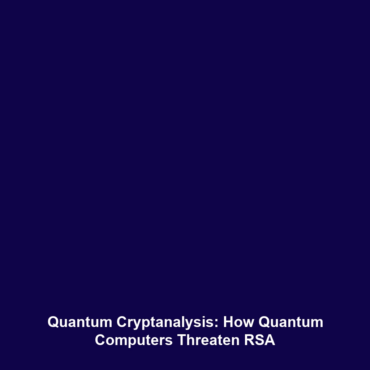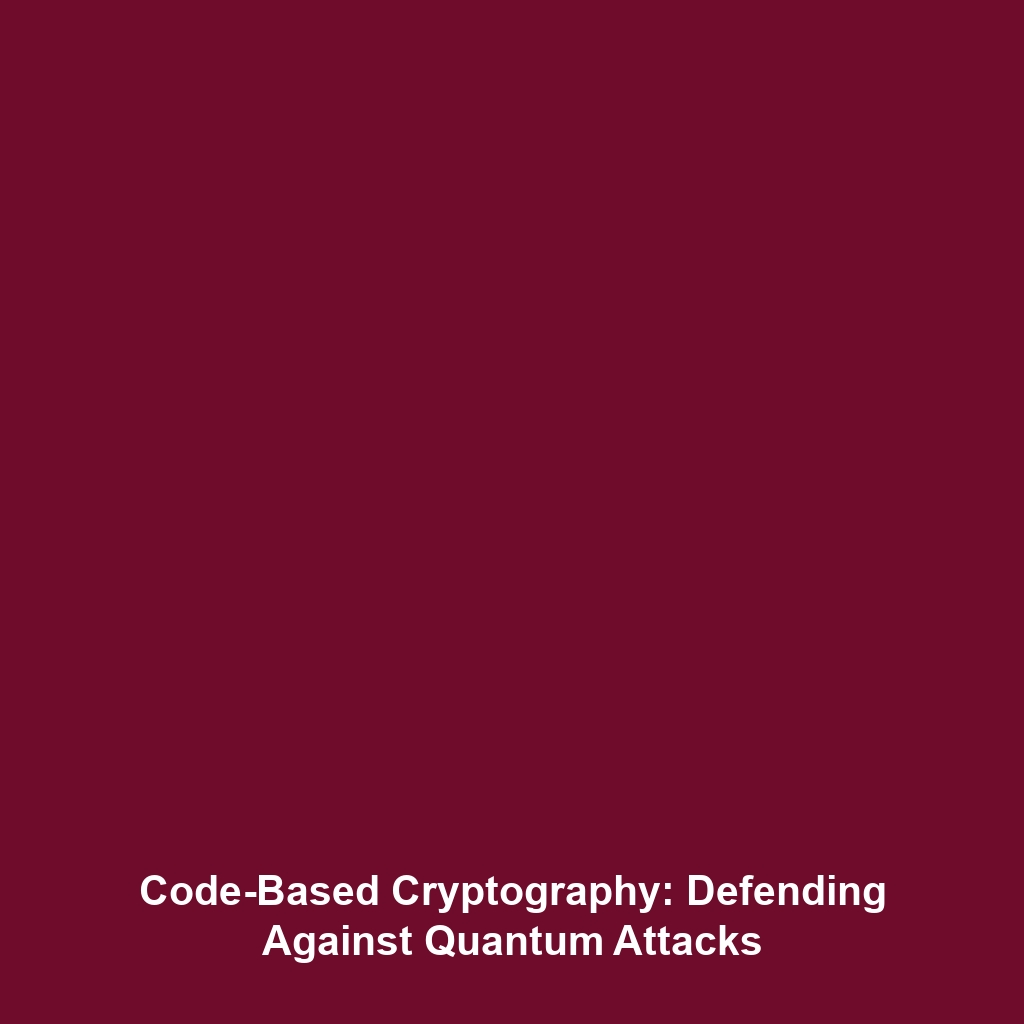Quantum Cryptanalysis: The Potential for Quantum Computers to Break Traditional Cryptography
Introduction
Quantum cryptanalysis represents a revolutionary shift in the field of cryptography, threatening to undermine the security of numerous encryption methods that are foundational to modern digital communication. As quantum computers advance, their ability to execute algorithms like Shor’s algorithm poses significant risks to traditional cryptographic systems such as RSA, which underpins secure online transactions. Understanding the implications of quantum cryptanalysis is essential for preparing our cryptographic defenses against an era of quantum computing.
Key Concepts
To grasp the significance of quantum cryptanalysis, we must explore several key concepts:
Quantum Computing
Quantum computers utilize quantum bits or qubits, allowing them to perform calculations at speeds unattainable by classical computers. This capability fundamentally changes the landscape of cryptography.
Shor’s Algorithm
Shor’s algorithm, developed by mathematician Peter Shor, can factor large integers exponentially faster than the best-known classical algorithms. Since RSA encryption is based on the difficulty of factoring large numbers, Shor’s algorithm poses a direct threat to the security of RSA-encrypted data.
Traditional Cryptography
Traditional cryptography relies on mathematical puzzles that are computationally intensive for classical computers but may be easily solved by quantum algorithms. This shift necessitates a reevaluation of current cryptographic practices.
Applications and Real-World Uses
Quantum cryptanalysis has several significant applications in the realm of cryptography:
- Data Security: Organizations must transition to quantum-safe algorithms to protect sensitive data against potential breaches.
- Secure Communications: As threats from quantum computers grow, the need for secure communication channels becomes paramount.
- Blockchain Technology: Integrating quantum-resistant algorithms in blockchain protocols can strengthen the security of decentralized systems.
Current Challenges
Despite its potential, there are notable challenges in studying and applying quantum cryptanalysis within cryptography:
- Hardware Limitations: Current quantum computers are still in their infancy and struggle with error rates and coherence times.
- Lack of Standards: The cryptographic community has yet to establish unified standards for quantum-resistant algorithms.
- COST: The financial investment for developing and deploying quantum-safe systems is extensive.
Future Research and Innovations
Innovations are ongoing in the field of quantum cryptanalysis, with notable research directions including:
- Next-Gen Quantum Algorithms: Researchers are continually developing advanced algorithms that leverage quantum computing capabilities.
- Quantum Key Distribution (QKD): QKD is a promising technology for establishing secure communication that even quantum computers cannot easily compromise.
- Post-Quantum Cryptography: Designing cryptographic systems that can withstand quantum attacks is a primary focus for future research.
Conclusion
Quantum cryptanalysis presents both a challenge and an opportunity for the future of cryptography. As quantum computers evolve, the need for robust security measures becomes increasingly urgent. By understanding the implications of these advancements, stakeholders can better prepare for a secure digital future. To learn more about the implications of quantum computing on cryptography, consider exploring our articles on Quantum Safety Measures and Post-Quantum Algorithms.

